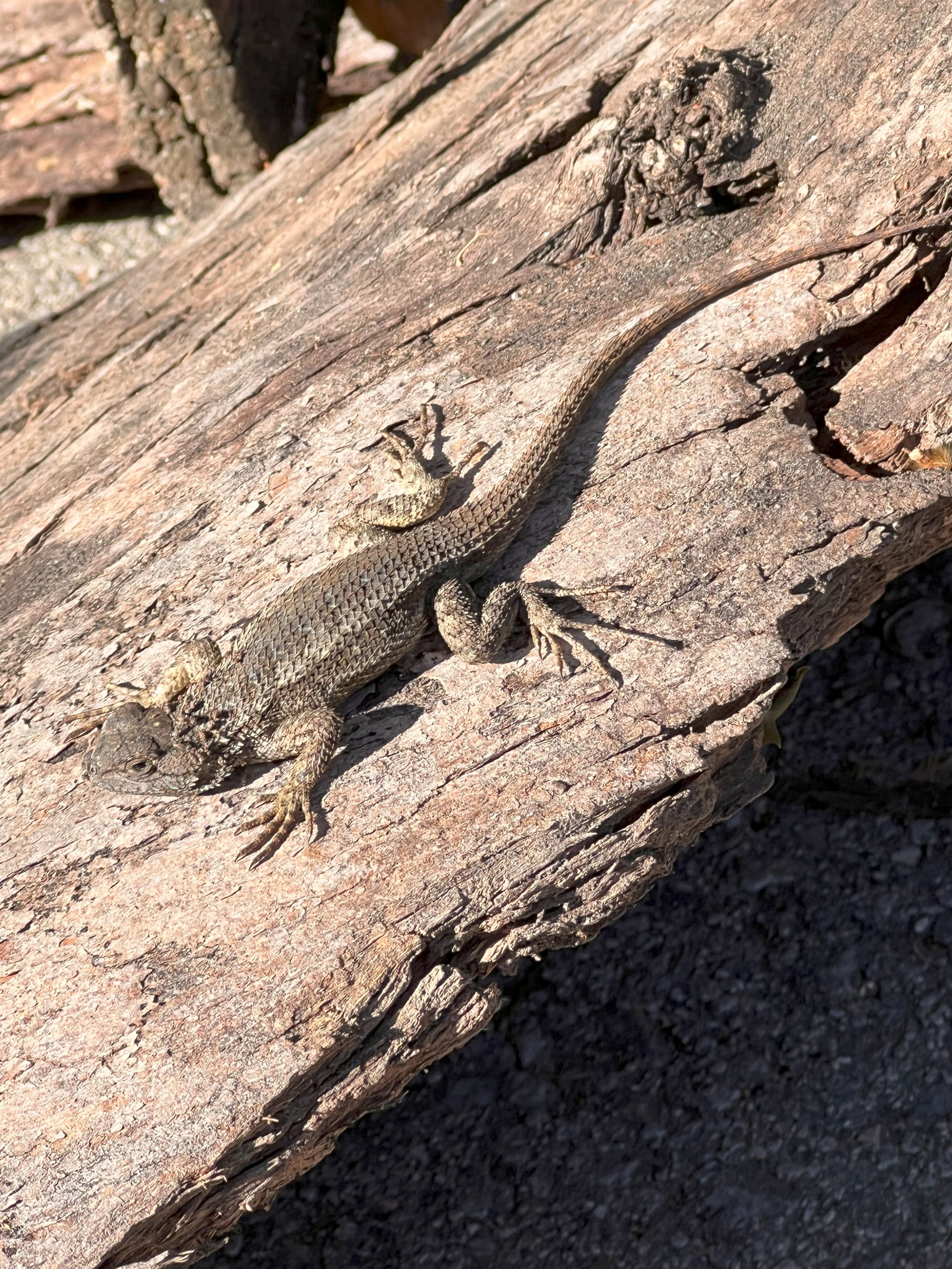Blue Bellies, Ticks, and Other Parasites
One of the most fascinating things about western fence lizards (to me) is that they have a compound in their blood that neutralizes the bacteria that causes Lyme disease. Despite having this super power. Ticks can still have a negative effect on these lizards couple that with other parasites and that could mean bad news for the lizards.
Megía-Palma et al were interested in how lizards infested with ticks who also had tick borne parasites may be effected. They were specifically interested in if it would change how the lizards thermoregulate which is regulating their body temperature. For humans (and other endotherms), our bodies generate heat internally to maintain our body temperature. But for lizards ( and other ectotherms) they depend on external sources of heat to maintain their optimal body temperature.
To explore this question, the scientist caught 119 lizards and brought them back to the lab. They took different body measurements like weight, how long they were, and their general condition. They looked to see how many ticks they had on them if any. Then they checked the lizards for any gut parasites.
They found that lizards infected with ticks were more likely to seek colder temperatures. This could bring a problem as it could lead the lizards to get less heat than they need. However, if the lizards had ticks and were also infected with the Acroeimeria sceloporis parasite, they did not seek colder temperatures. Meaning if the lizards were infected with ticks and this parasite, they would be more active if they were infected with only ticks.
The scientist looked at one other parasite, Lankesterella occidentalis, and found lizards infected with ticks and this parasite still sought out colder temperatures. You can read the full article here but for now….
Can you #FindThatLizard? Let me know below in the comments with #FoundThatLizard


